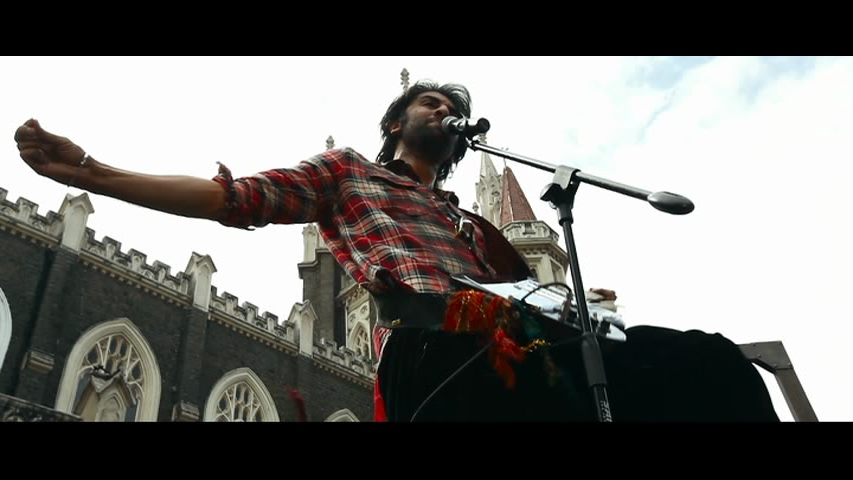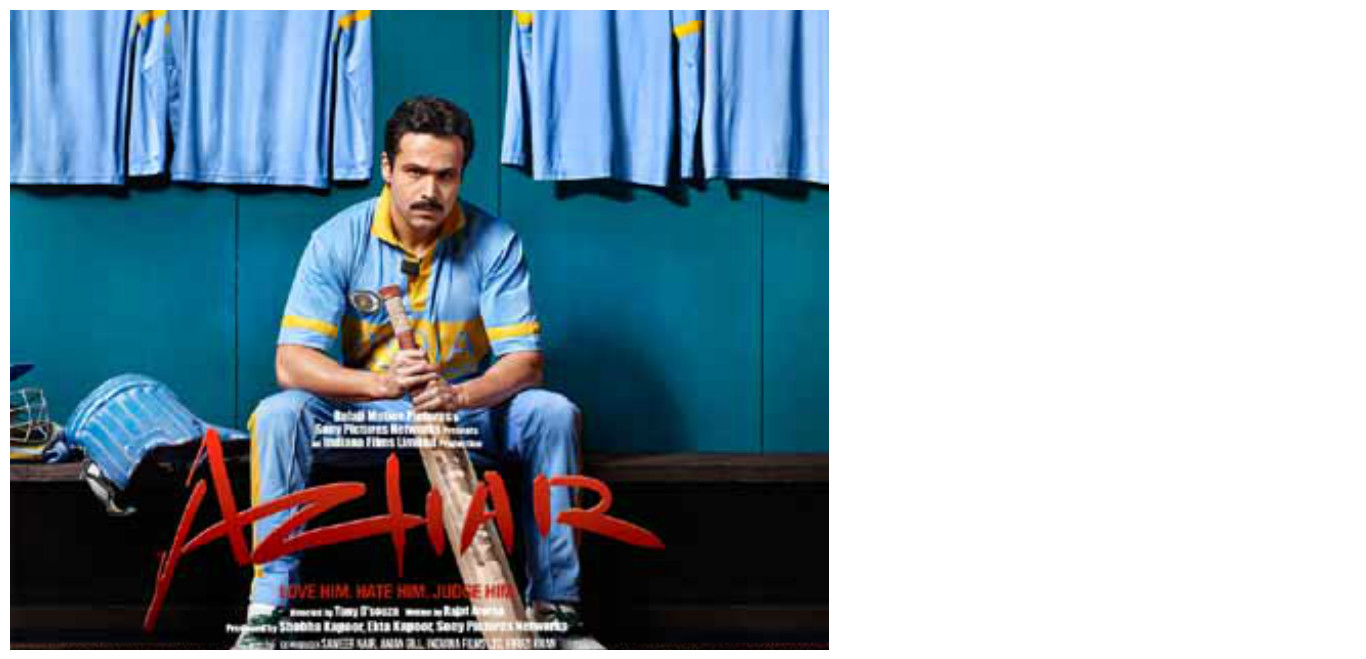Shool
Shool : Movie Review
Rating: 5 stars (Masterpiece, and a key manual to be followed in resurrecting modern India)
Director: E. Nivas
Producer: Ram Gopal Varma
Writer : Anurag Kashyap
Hindi (English subtitles available), 1999
As if allowing ourselves to get brutalized by the British for 150 years was not enough, it is a fact that 60 years after our nation's independence , it remains a punishment to be an Indian. If you're a gentleman, you're surrounded by barbarians and a devastated civic system , and the rest of the world overtly or covertly sniggers at you. The stigmata haunt in an array of forms and levels. But hearteningly , there remain a breed of Indians who will sacrifice everything they have for the greater good. Circa the birth of Christ give or take a few centuries, Greek travellers wrote :"It is contrary to established practice for Indians to do or suffer a wrong" (Aut o a Y. 1946 SRF) Shool's hero charts a return to this halcyon age, no matter the cataclysms he has to weather.
Not far from Pataliputra, one of the world's most illustrious cities at the time of Ashoka, Chandragupta & Alexander , a train glides into an oblique frame that inhabits a debauched present. From it, alights Samarpratap Singh a young man and law-keeper born at the wrong time for him, and at exactly the correct juncture for the wilderness around. It heralds the start of the razing of the jungle, one of the few moralistic examples of such kind, which is needed for the earth to resurrect.
He has barely set foot in town, with family and luggage in tow, when a ruffian porter extorts him. Not being a cowardly doormat, he counters the rabidity. Samar's fight, instead of concluding that morning, is relentlessly dragged forth to the point where he stands in front of the Senate's Chair and beseeches the state's caretakers to retain sanity. They listen to the teacher, having never attended school.
But Shool is not a lugubrious moral drama, it crackles with expert direction and cracker-jack dialogue. Comedy, both ironic and ribald, often leavens the tension. Inside the main hall of State Legislature, politicians - who are more of monkeys than men - jump and shout wreaking havoc. A caring minister proposes a hydroelectricity project but the film's crazed villain jumps and snarls "If you remove electricity from water, the water becomes useless. How on earth do you then expect our farmers to cope? Hail Farmers!!" to which his mad colleagues all thump their desks in support! Even in a countryside restaurant, we indirectly see how meager Police Inspector Samar's salary is - his wife does not want to proceed with ordering Palak Paneer because it costs Rs. 25 (80 U.S cents in 1999).
The picture indirectly reveals how different Samar is from his pusillanimous father - no matter how you are raised, sometimes (I repeat, not in all cases) your innate nature will dominate you. Interestingly, his mother understands him better: she tells his distraught wife what has been said by others: people like Samar have stopped getting born.
Howard Hawks said that a good movie has three great scenes ones and no bad scenes. I lost count of the powerhouse scenes in "Shool" - it has just one bad scene: a cringe-worthy sugary-sweet song sung by the daughter, but hey! Hawks ,important though he is, and his statements, need not be taken word for word. Consider the escalation, tight plateaus and eventual soar of this film's structure - modern-day India is regrettably witness to too much eve-teasing - the way Samar addresses an encounter of this type is set to terrific background score and a cane-whip of a finish. The Commissioner of the town, who likely flushes his morals down the toilet every morning, repeatedly needles Samar - their flashpoint is bookended by another taut scene of the mega-villain gliding into the fray. The latter'e entry into Samar's house again flashes with tension and faux joy. A fight in a market recalls a lion lashing out against leering hyenas, with an constant undertow of lurking tragedy. And finally an explosive and humbling scene in a police-station, cranked up into even higher gear by some of the most electrifying background music I've heard, leads to stride in to the Senate House for a sequence that is beyond preaching - no priest from the pulpit may have ever delivered a a more direct life-changer.
Marlon Brando is the Manoj Bajpai of Hollywood. Bajpai here works with Eeshwar Niwas and R. Verma to demonstrate why he is a pariah tiger. Left to his own devices, he makes a indiscriminate fool of himself on Twitter, but under the tutelage of Ramgopal Varma whose cinema house he has since left, and who is claimed to have suffocated Bajpai's choices ,Bajpai rises to the peerless fore. Here he essays Samar-Pratap: a fearless cop in a country where the majority are worse than prostitutes (the former sell themselves though they are duty-bound not to). But Samar is not a robot who toes the moral line by rote and bores the viewer, he is a romantic who knows hows to flirt with his lady, humour his kid daughter and remind his colleagues of the correct title of "Basic Instinct" when they are fumbling for it. His flaw is that he does not have a flaw - in a town full of rotten humans, this can be a fatal weakness.
The Overlord of the town Bachu Yadav then lands up on a collision course with Samar. Yadav has been the MLA (Member of Legislative Assembly) of the region for fifteen years, bribing and terrorizing every man of consequence in this area, while running riot with his megalomania. Neither Samar nor Bacchu will relent - thus triggering fights,murders, tears, and fiendish manoeuvering which ultimately propel the story to a apocalyptic show-down.
Bacchu is essayed by Sayaji Shinde - the Marathi actor who is very rarely given big roles in Hindi cinema. His alpha villain here is the stuff of legends - on par with Javier Bardem of 'No Country for Old Men', and the best of Amrish Puri - but in contrast to these counterparts his flamboyance matches his chilling evil and gives it greater enigma. A pure psychopath, Bacchu, by selecting the right mix of wolves to empower him (he will kill any one in his inner circle for convenience), romps through this movie with a grinning fever pitch of nihilism. We see a human demon in action. But Bacchu is not all criminality and no play.
Sporting an ear for music as well, he settles down with his henchman, enjoys and does a Karoake for a local song on the tape-recorder (Bachua hamaar competition dethaa!) which celebrates Bihar and UP's notoriously competitive entrance examinations. He gets up to dive in with his gang in "Mein aayi hu UP Bihar Lootne" - an absolute hoot of a song in which barbarians prance and fall over a singing and dancing siren. Never at a loss for juicy dialogue, he glowingly tells Samar " I thought people like you had stopped getting born a long time ago!" He jumps with tenderness and generosity in embracing Samar's father, and outrageously rushes in with garlands when Samar's house is shrouded in gloom. Not one other person in town dares to stand up against Yadav beacuse of the fear of getting killed. Yadav counts on this, but he hasn't counted on the law of opposites.
Raveena Tandon in the 1990s and early 2000s was in the top gallery of Hindi film actresses who blended beauty, sex appeal and warmth. In Shool, as Samar's devoted wife, producer RGV asked her to remove her make-up before filming a scene, and the alabaster and naturally glowing lady honestly informed him that she was wearing no make-up! Tandon acts with superb spontaneity and passion in Shool: her character Manjari lovingly supports her husband when the going gets tough and rightly administers a verbal hiding to Samar when his actions land them all in hell. Flawless compelling turns are logged in by Ganesh Yadav and Vineet Kumar - embodying two policemen who are each a different animal.
What happened to E.Niwas? This has been the question posed in the years after Shool's release. Manoj Bajpai said in an interview that he had told the film's director E.Niwas what a fabulous brain the latter has, and whether he can give this brain to Manoj ! Shool bears ample evidence of this effusive praise but since then, Niwas has only sporadically managed to direct films most of which have been risible scatty comedies. I'm unsure how much of Shool's end-product was the direct handiwork of mentor and producer R.G.Varma but if Niwas was actually responsible for the lion's share of Shool's film-making, then he has undoubtedly wasted his talent in the subsequent years.
Apart from plot, direction and acting, another powerful element jacks up this film's value - Sandeep Chowtha's inspired background score. Influenced by great Western guitarists, and often tweaking African music to generate mood-intensifying vocals and riveting percussion, Chowtha enhances this film's collapsing world by bringing down the roof with his pulse-pounding underlines and haunting echoes. Pic's cinematography is not high-definition but there is solid technique in movement and framing. But there are movies where considerations of technical values are blown to pieces by incendiary drama. E.Niwas, R.G.Verma & Co. thus engineer one such example of legendary reality in the Indian boondocks. Shool is the Brahmopadesh of Kalyug.
UPN
UPNWORLD welcomes your comments.












0 COMMENTS
WRITE COMMENT